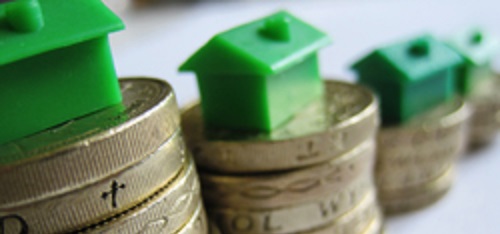Market overview
Experts tend to see Austria as one of the safest bets in all of Europe for overseas investors, having enjoyed consistently strong property values that rarely seem to go anywhere but up. Unsurprisingly, Vienna represents the key focal point for investors and has exploded in potential for both rental yields and re-sell property investment over recent years. However, Austria’s stunning alpine ski resorts shouldn’t be overlooked either as despite only offering seasonal rental opportunities in some instances, the annual turnover of the right place in the right resort can be frankly massive.
From Saalbach to Solden to Kitzbühel to Innsbruck, demand is off the scale all throughout the ski season and plenty of these regions have an equally high level of appeal during the summer.
The Selling Process
 Marketing your property
Marketing your property
The normal means of marketing a property in Austria is via an estate agent as they can also value your property. Before you take on their services, you should check carefully what they will and will not do in terms of marketing and what they will charge as commission. It is possible to sell without using an agent. There are more and more specialist websites and magazines advertising property for sale.
 Legal Representation
Legal Representation
The seller has to comply with the legally stipulated notification requirements toward those having rights of pre-emption i.e. first refusal to buy the property should it be offered for sale. Vendors must ensure they possess relevant property ownership documents, including the land register, and make sure they have paid any outstanding tax or utility bills on their property.
Under Austrian law, only deeds of sale witnessed and authorised by a notary can be registered at the land registry. Your estate agent will be able to put you in contact with the notaries they use regularly. It is essential to find an independent lawyer to represent your interests and offer impartial legal advice. You will also need to seek advice on the international dimensions of the transaction and on the critical issue of UK taxation. If you are not intending to be in Austria during the purchase process, you will need to grant Power of Attorney to your legal representative and the notary will have someone in his office to sign on your behalf.
 Contract
Contract
Once all the necessary legal checks have been completed to the satisfaction of the buyer, you will be ready to sign a private sales contract. Before this stage you should have had the contract translated into English and ideally have English-speaking assistance on hand during the signing.
This agreement commits both buyer and vendor to complete the transaction and at this point the buyer must pay a deposit which will be forfeited if the buyer walks away from the deal subsequently. However, if the vendor reneges on the deal at a later date, they are liable repay the buyer twice the value of the deposit in compensation.
 Preliminary Agreement
Preliminary Agreement
Once a sale price has been agreed, a verbal offer will need to be made through the estate agent. Your lawyer will oversee proceedings, including any deposit or reservation payments and the formal agreement of final purchase price.
 Legal Searches
Legal Searches
Zoning and development plans are available for public inspection at the Municipal Offices indicating whether and in what form building activities are allowed on the property of your choice. The Municipal Offices will also inform you about whether the zoning and development plans for any specific location are available in print. Any such plans can then be purchased for a small fee.
 Deposit
Deposit
When the seller accepts the offer, a purchase agreement or sale contract is drawn by an Austrian solicitor/notary. When the contract is signed, the buyer may be expected to pay 10% of the purchase price as deposit, which is put in a trustee or escrow account until the completion takes place.
 Completion
Completion
After all the legal paperwork has been completed, the deed of sale is signed at the notary’s office and the buyer must pay the balance of the purchase price, all professional fees, transfer taxes and notary fees.Ownership passes from vendor to buyer when the transaction has been registered at the Land Registry.
 Completion
Completion
Upon completion your lawyer will register transfer detail at the local registry office and pay transfer and registration duties. Property registration costs around 4.5% of the property value. It takes an average of 32 days to complete all the three procedures needed to register a property in Austria.
Average selling prices

Unknown
Unknown
Unknown
Unknown
Unknown

Once you have met these costs, you have paid to sell your home
Photos: Alcindo Correa Filho, AJC1
Are you looking to buy property in Austria ? Klagenfurt Am Wörthersee , Wörschach , Griffen , Salzburg , Kötschach-mauthen
Are you looking to rent property in Austria ? Wien , Hohentauern , Kirchberg In Tirol , Zell Am See , Saalbach-hinterglemm






Author
Carol McDonald